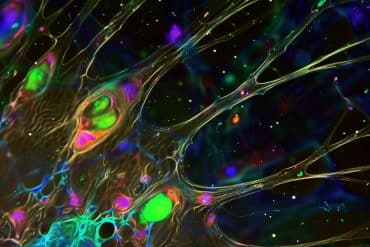It is claimed one in five students have taken the ‘smart’ drug Modafinil to boost their ability to study and improve their chances of exam success. But new research into the effects of Modafinil has shown that healthy students could find their performance impaired by the drug.
The study carried out by Dr Ahmed Dahir Mohamed, in the School of Psychology at The University of Nottingham Malaysia Campus, and published today, Wednesday 12 November 2014, in the open access journal PLOS ONE, showed the drug had negative effects in healthy people.
Dr Mohamed said: “We looked at how the drug acted when you are required to respond accurately and in a timely manner. Our findings were completely opposite to the results we expected.”
In a randomised double blind study, ‘Modafinil increases the latency of response in the Hayling Sentence Completion Test in Healthy Volunteers: A Randomised Controlled Trial’, they administered 32 participants with the drug and 32 with a placebo. All the participants were given a famous neuropsychological task known as the Hayling Sentence Completion Test in which they were asked to respond both quickly and accurately. Dr Mohamed found the drug slowed down reaction times, impaired their ability to respond in a timely manner and failed to improve their performance of the task.
Dr Mohamed said: “It has been argued that Modafinil might improve your performance by delaying your ability to respond. It has been suggested this ‘delay dependent improvement’ might improve cognitive performance by making people less impulsive. We found no evidence to support those claims.
“Our research showed that when a task required instant reactions the drug just increased reaction times with no improvement to cognitive performance.”
This backs up the findings of a previous study carried out by Dr Mohamed and published in September 2014 in The Journal of Creative Behaviour. The study: The Effects of Modafinil on Convergent and Divergent Thinking of Creativity: A Randomised Controlled Trial showed that the so called ‘smart’ drug impaired the participant’s ability to respond in a creative way particularly when they were asked to respond laterally — outside the box.
Does Modafinil benefit anyone?
When Dr Mohamed looked at participant’s ability to problem solve in a creative manner he found that those who weren’t particularly creative to start with were improved by the drug while those who were creative were impaired by the drug.

He said: “Our study backs up previous research that suggests psychostimulants improve people at the lower end of the spectrum in cognition whereas they impair people who are at the optimum level of cognitive function — healthy people for example. It looks like Modafinil is not helpful for healthy individuals and it might even impair their ability to respond and might stifle their lateral thinking, while people who have some sort of deficiency in creativity are helped by the drug.”
What can make us smarter?
Ahmed Mohamed’s research was carried out while he was at Cambridge University. He has since moved to The University of Nottingham Malaysia Campus where he will be looking at the effects of non-pharmacological interventions, such as meditation, exercise and diet on the healthy brain. He is also currently using Electroencephalography (EEG) to study how mindfulness can affect the healthy adolescent brain.
Dr Mohamed said: “What I have found in my doctoral studies is that if you are already a healthy person and functioning at an optimum level, it is really difficult to improve your cognition. But the brain of the adolescent is still in development and you might be able to improve cognition at this stage of our development through positive interaction, healthy diet or mindfulness.”
Contact: Lindsay Brooke – University of Nottingham
Source: University of Nottingham press release
Image Source: The image is adapted from the University of Nottingham press release
Original Research: Full open access research for “Modafinil Increases the Latency of Response in the Hayling Sentence Completion Test in Healthy Volunteers: A Randomised Controlled Trial” by Ahmed Dahir Mohamed and Chris Roberts Lewis in PLOS ONE. Published online November 12 2014 doi:10.1371/journal.pone.0110639
Modafinil Increases the Latency of Response in the Hayling Sentence Completion Test in Healthy Volunteers: A Randomised Controlled Trial
Modafinil is a medication licensed for the treatment of narcolepsy. However, it has been reported that healthy individuals without wakefulness disorders are using modafinil off-label to enhance cognitive functioning. Although some studies have reported that modafinil improves cognitive task performance in healthy volunteers, numerous other studies have failed to detect cognitive enhancing effects of modafinil on several well-established neuropsychological tasks. Interestingly, several clinical and preclinical studies have found that improved cognitive task performance by modafinil is accompanied by slower response times. This observation raises the question as to whether this slowing of response time in healthy volunteers is a necessary and sufficient condition for cognitive enhancement with modafinil. The aim of the current experiment was to explore this question by investigating the effects of modafinil on the Hayling Sentence Completion Test (HSCT).
“Modafinil Increases the Latency of Response in the Hayling Sentence Completion Test in Healthy Volunteers: A Randomised Controlled Trial” by Ahmed Dahir Mohamed and Chris Roberts Lewis in PLOS ONE. doi:10.1371/journal.pone.0110639.






